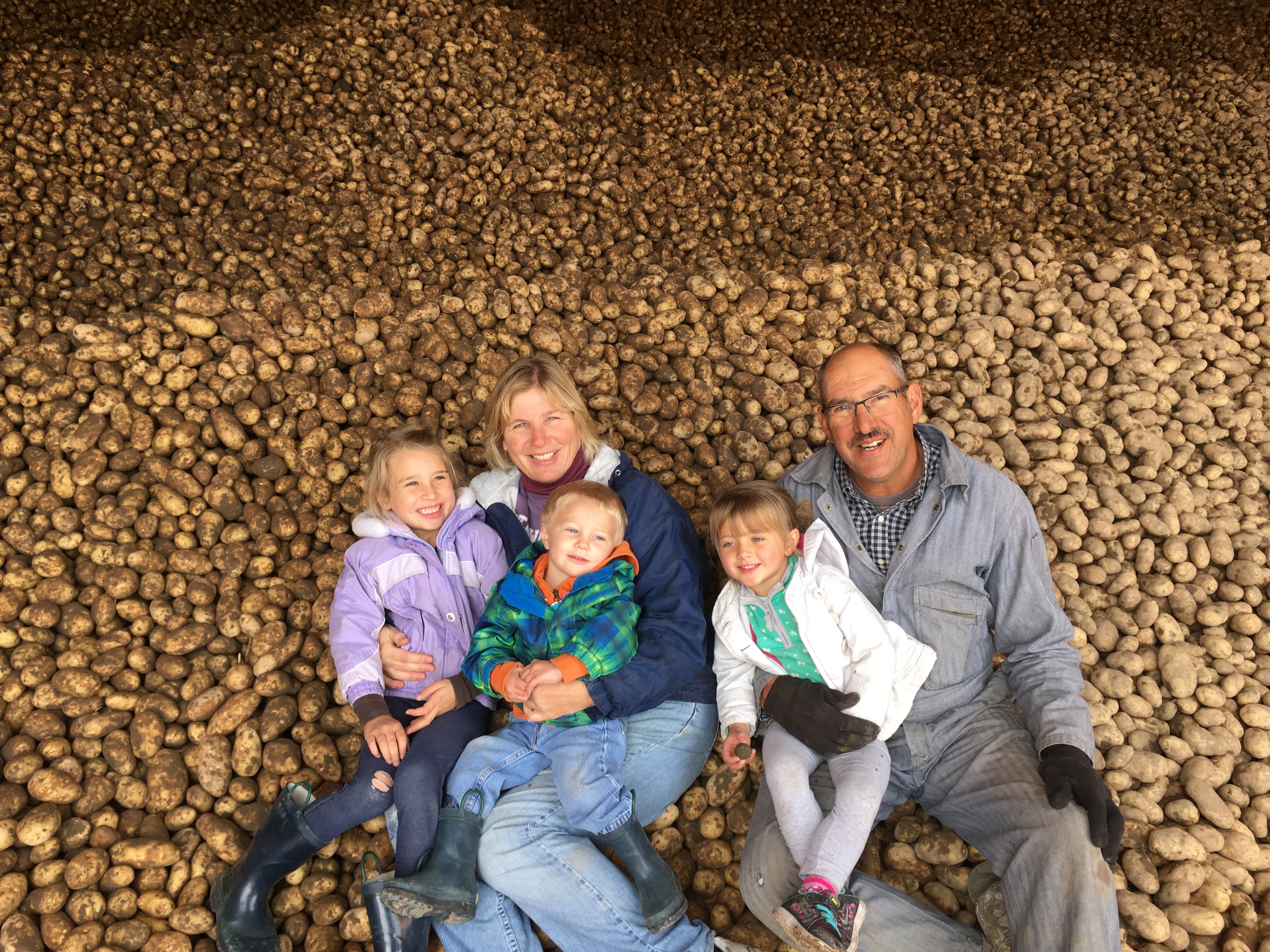Precision application of water through a reliable irrigation system is essential on any crop, but especially on potatoes.
A shallow-rooted plant, potatoes are very sensitive to even the smallest change in soil water content in the root zone. Throughout the life cycle of the crop, uniform water application rates are vital if you want to maintain a profitable operation. Not irrigating enough can reduce the quality of the crop, and over-irrigating can make it susceptible to disease and decrease yields.
From pre-planting to pre-harvest, optimal moisture levels play a critical part in the overall success of the crop. Potato growers will want to consider irrigating before planting if their soil is dry to avoid fungal disease by watering just before or after emergence. Irrigation can also help keep the soil temperature down to encourage higher numbers of tubers as the plant continues to form. During this next growth stage, moisture does the most to keep tubers at a uniform shape and size as they bulk up. As growers head into harvest, they closely watch soil moisture conditions again—land that’s too dry can cause damage to the tuber if the dirt isn’t soft enough during harvesting.
Precision Control of Irrigation
“The most important thing for a successful potato crop is quality water evenly applied for the entire irrigation season,” says Konnor Kelsey, operations manager at Watson Irrigation Specialists. “So a pivot with precision controls and an up-to-date sprinkler package will make the biggest impact in growing uniform tubers into a high-cash crop.”
Kelsey should know. He’s been in the irrigation business for more than 10 years, earning a degree in agriculture systems management and becoming a certified Reinke Platinum Plus technician in 2011. He’s been helping Montana growers find solutions to fulfill their irrigation needs for nearly nine years with Watson, which has locations in Townsend and Joliet, Mont.
Technology Saves Resources
“To be good stewards of their resources and save time, money and labor, more and more farmers are looking to us to provide them with technology packages to control their pivots,” Kelsey says. “Integrating variable rate irrigation (VRI) with touchscreen, phone controls and the ‘end-of-system’ GPS are changing the way we think about irrigation.”
Since 2002, Reinke has led the way with the introduction of GPS technology to control and manage center pivot systems. The company was also the first to bring touchscreen technology to the pivot industry in 2009 and the first to integrate VRI with those controls and GPS seven years ago.
Kelsey says another standard in the industry is helping his growers: high-strength steel. Up to 50 percent stronger than steel used in competitors’ irrigation systems, it weighs as much as 20 percent less.
“The high-strength steel structures help the pivots adapt well to the terrain around here,” he says. “The single-leg towers from Reinke don’t stress the span pipe as it articulates over the potato rows. This saves wear on gearboxes and water hoses.”
Whether you farm on the plains or in the hilly terrain of Montana, irrigating potatoes is a necessity. A good partner that will keep your pivots watering consistently throughout the growing season is key. Form those partnerships early and take advantage of their industry expertise.
Improving Productivity
.jpg) One grower taking advantage of his dealer’s knowledge is Martin Kimm in Manhattan, Mont.
One grower taking advantage of his dealer’s knowledge is Martin Kimm in Manhattan, Mont.
Kimm Brothers Farm got its start in 1950 with just 52 acres when Stanley Kimm immigrated to Montana from the Netherlands. Today, Stanley’s son Martin has 2,500 acres that he farms with his son Taylor, and help from Brett Heidema. They produce Ranger Russet and Russet Burbank seed potatoes as well as barley, corn, wheat, hay and alfalfa. The seed potatoes they grow are distributed across the country, from Washington to Maine.
Kimm has expanded his operation and taken on more land over the years. Locally, they farm acorss a 30-mile radius, but they’re also growing seed stock about 165 miles away in Bridger, Mont.
With a total of 24 pivots, most of them Reinke, Kimm has a lot of irrigation to keep track of and many miles between fields.
“I was driving 1,500 miles a week, and that was too much windshield time for me,” says Kimm. “It wasn’t productive. I had better things to do. We needed to find a solution that didn’t put so many miles on my truck.”
Watson Irrigation worked with him to install Reinke touchscreen panels, GPS controls and telemetry on his pivots. Now Kimm, his family and his help can keep an eye on things from anywhere.
“We can get on there and have a look from the computer at our base station or get on any of our phones and see what the pivots are doing,” he says. “It’s a lot more convenient to keep track of everything from wherever you are than to drive hundreds of miles each day and waste all that time.”
Kimm is spending less time in his truck these days. He’s still busy, but he’s now driving fewer than 15,000 miles a year.
With the technology package he’s added to his Reinke pivots, Kimm has more time to devote to his operation and to teaching his three grandchildren the family business.
